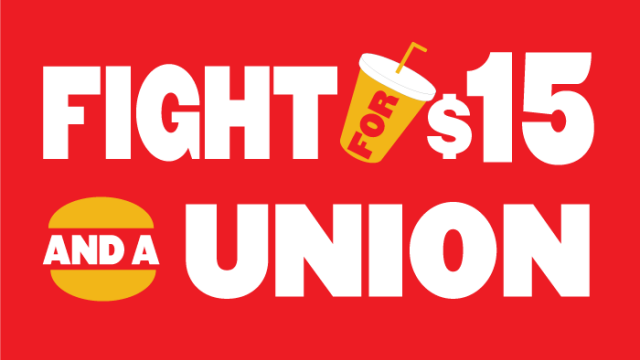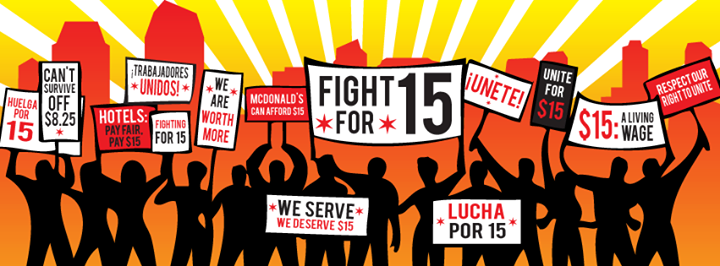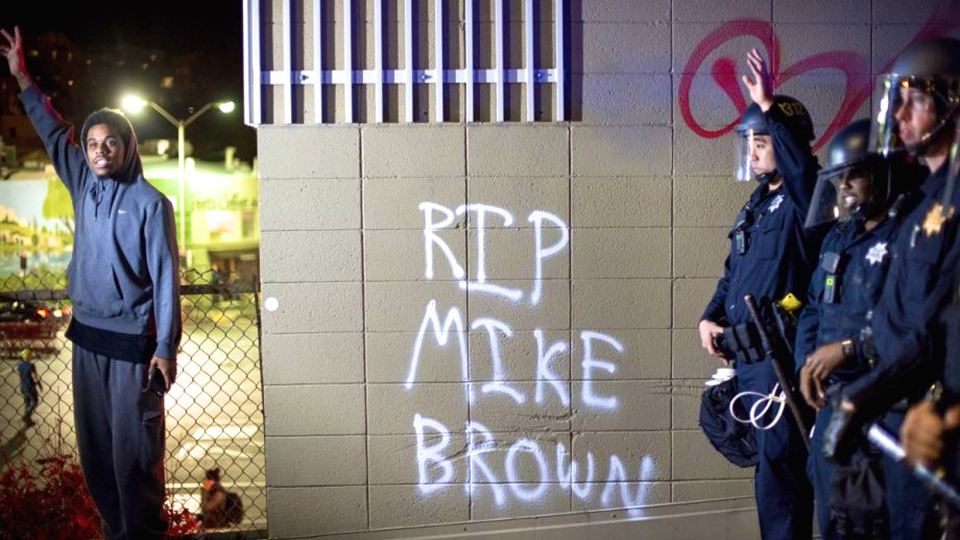
Martin Luther King, Jr. is a national hero for helping end racial segregation in the United States. Yet he spent the last years of his life working as much for economic justice as for racial justice.
When he was shot and killed in Memphis in April 1968, King was in the city on behalf of striking sanitation workers who were trying to organize a union and win higher wages. The predominantly black labor force had to work seven days a week with no vacations, carrying 80 pound crates of rotting garbage. They were being paid wages so low that many were forced to supplement their income with public assistance programs.
Dr. King always understood that the fight for labor rights was integral to attaining true social, political and economic equality. In a speech at the May 1961 AFL-CIO Constitutional Convention, he linked the aspirations of African-Americans in the United States with organized labor’s cause.
“Our needs are identical with labor’s needs,” he said. “The duality of interests of labor and Negroes makes any crisis which lacerates you, a crisis from which we bleed.”
King’s vision could hardly be more relevant today, and the Black Lives Matter movement, alongside activists fighting for a fairer minimum wage, is carrying his torch. Instead of seeing racial and economic justice as separate struggles, Black Lives Matter and the national fight for a $15 minimum wage have repeatedly presented their causes as intertwined. The cross-pollination of these two causes provides an inspiring example of how acknowledging interconnected issues of race and economic justice empowers social movements.
In the fall of 2013, the Seattle suburb of SeaTac voted to increase its minimum wage to $15. Since then, similar demands have swept the country. Protests and walkouts have occurred in hundreds of cities, and $15 has been won in Seattle, San Francisco, and most recently in Los Angeles (once the mayor signs the council’s final bill). The most prominent of these campaigns is an effort by the labor union SEIU; its slogan, “Fight for $15,” has come to be the rallying call for the broader movement.
Black Lives Matter, meanwhile, was founded after the shooting of Florida teen Trayvon Martin in February of 2012. It gained momentum after the killings of Eric Garner and Michael Brown last year, and flared up in response to the mysterious death of Freddie Gray in police custody in Baltimore. Black Lives Matter is leading a comprehensive debate around law enforcement reforms, and it is forcing greater responsiveness to police abuses from political figures.
It’s easy to assume these movements have entirely different goals. However, the protesters themselves have articulated how low-wage work, long-term unemployment, and economic segregation have gone hand-in-hand with problems of racial segregation and abusive policing. The result has been an inspiring and sophisticated level of collaboration.
Alicia Garza, one of the founders of Black Lives Matter and a Special Projects Director with the alt-labor group National Domestic Workers Alliance, recently stated in a report on black women labor leaders, “In Ferguson I saw leaders from the Fight for $15 movement really on the front lines moving labor leaders by saying, ‘I’m not just a worker. I’m somebody who lives in this community, who is being targeted by the police all the time — and you have to see that about me.’”
“They’re showing that it’s not just a class issue,” she continued. “It is class, it is race, it is gender, it is geography, it is all of these things that make us who we are. Also state violence, fundamentally, is systemic racism. And that shows up in every aspect of our society — so it’s absolutely a labor issue.”
The cross fertilization between these two campaigns makes a lot of sense. As in the Memphis sanitation workers strike, people of color disproportionately share the burdens of police brutality and unconscionably low wages. The Department of Labor’s most recent “Profile of the Working Poor,” found that “Hispanics and blacks were more than twice as likely as whites and Asians to be among the working poor.” And ProPublica recently confirmed that young black men, in particular, are at far, far greater risk of being killed by the police than any other racial group.
Hyper-segregated African-American communities in Baltimore and Ferguson have been the site of recent bursts of civil unrest in reaction to police brutality in part because they are isolated from economic opportunity. Public transit is minimal in Ferguson, leaving the many carless residents stranded far from job centers and inner city social services, as Peter Dreier and Todd Swanstrom detailed in the Washington Post. Meanwhile, Baltimore has the least comprehensive mass transportation systems of the five major northeastern cities and only receives $5,336 per public school student. The spasms of civil violence that briefly gripped both municipalities are only the most visible manifestation of these inequities.
The recent spate of unrest across the United States has shown the world that American civil rights have a long way to go, and that MLK’s goal of linking racial and economic justice was never fully realized. But by acknowledging that problems of jobs and wages go hand-in-hand with racial discrimination, today’s activists are reinvigorating his legacy—and they may yet secure a more equitable America.
3 WAYS TO SHOW YOUR SUPPORT
- Log in to post comments















